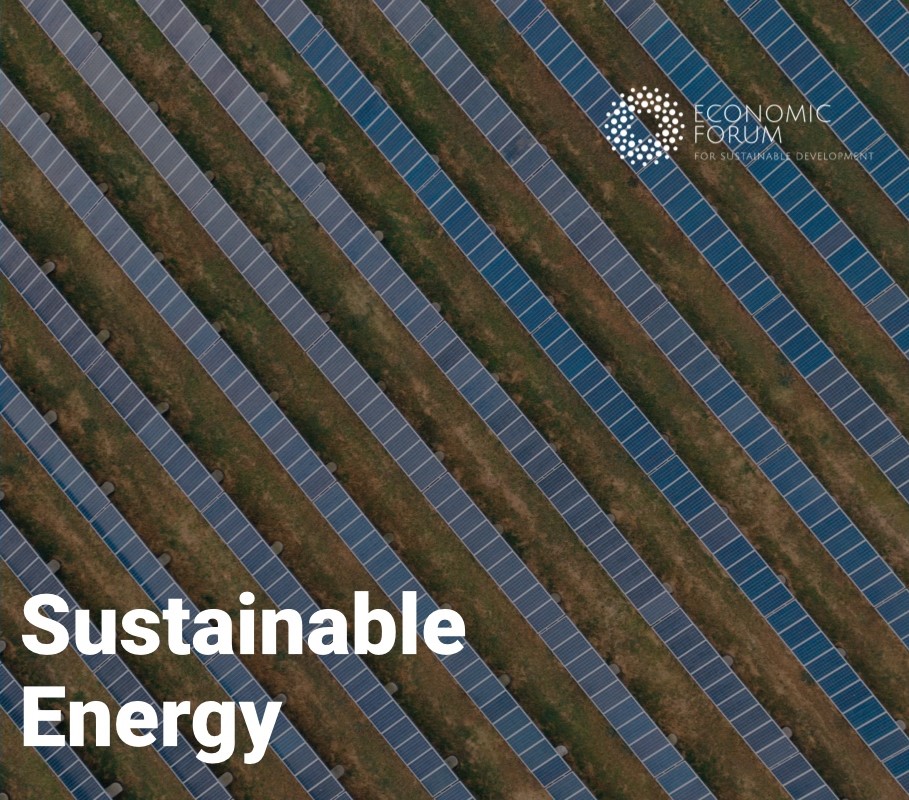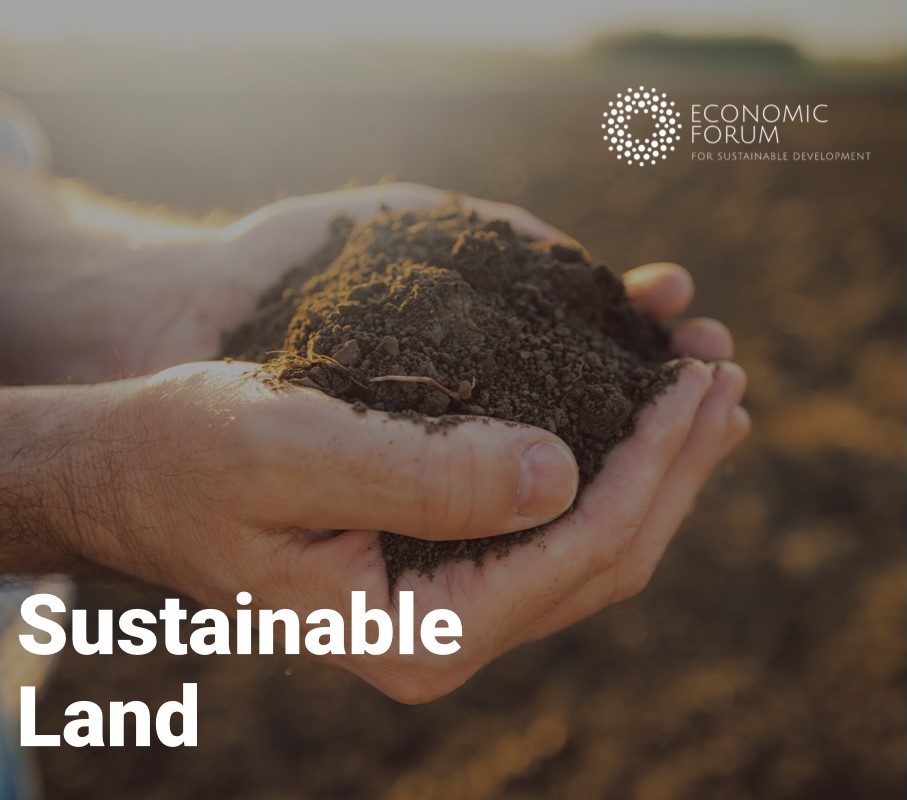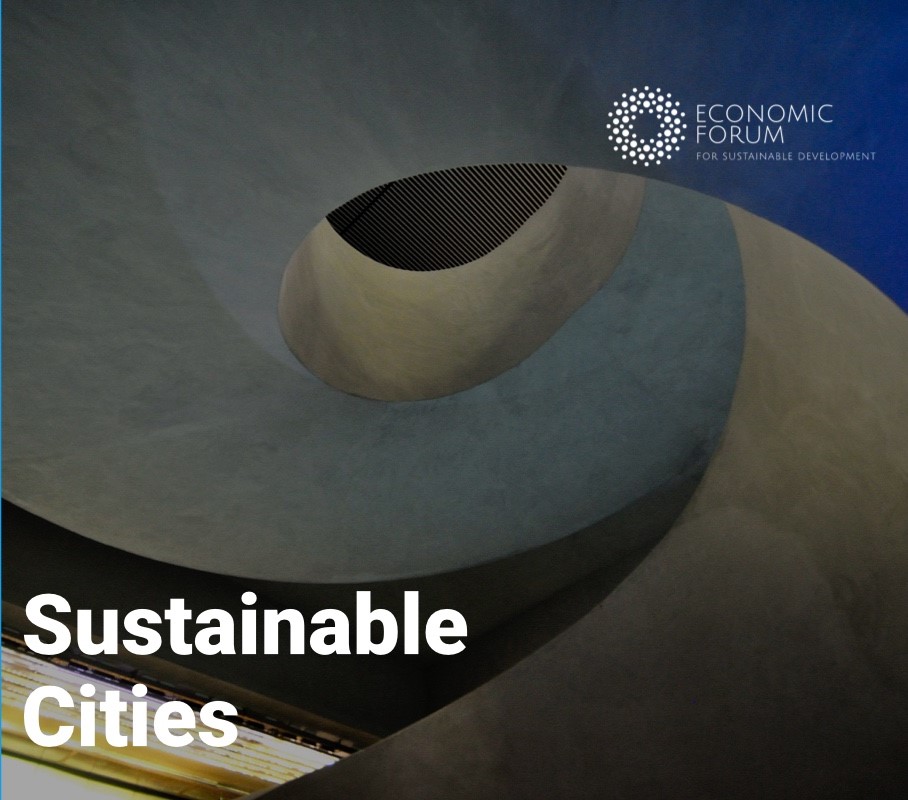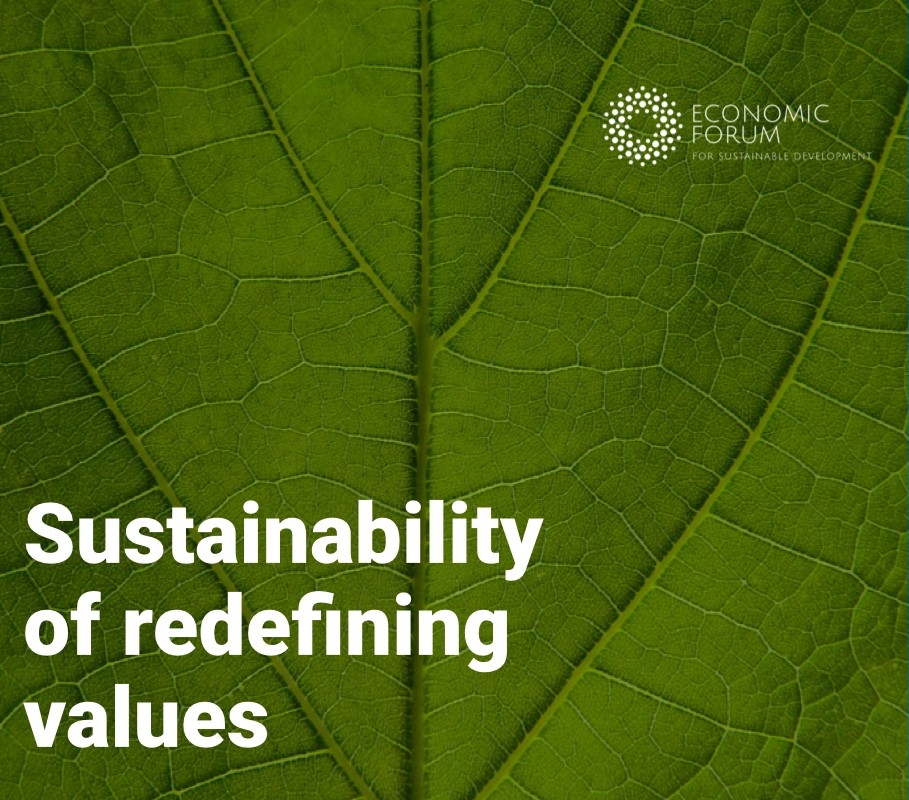We are a unique forum associated with a network that enables members to advance sustainable development initiatives, learn from leading companies, engage with challenging partners, and access a one-stop shop for tools and knowledge to drive their sustainability and digital journey forward. We collaborate with leading companies to develop high-impact strategies that span across Energy, Food & Land-Use, Cities, Mobility, and Redefining sustainability classifications. Our main focus is on GCC countries and their digital transformation journey towards a more sustainable economy.

Sustainable Energy
The Economic Forum for Sustainable Development (EFSD) is an international organization that works to promote sustainable development and address global challenges related to economic, social, and environmental issues. One of the key areas of focus for the EFSD is sustainable energy, as access to reliable and affordable energy is essential for driving economic growth and improving the quality of life for people around the world.
To address sustainable energy topics, the EFSD brings together experts and decision-makers from a variety of sectors, including governments, businesses, civil society organizations, and international organizations. The organization works to identify and assess the challenges and opportunities related to sustainable energy and to develop and promote policy recommendations and strategies for addressing these issues.
One key area of focus for the EFSD in terms of sustainable energy is the transition to renewable energy sources. The organization works to support the development and deployment of technologies such as solar, wind, and hydroelectric power, which can provide clean and reliable energy while reducing greenhouse gas emissions and mitigating the impacts of climate change. The EFSD also works to promote energy efficiency and conservation, as well as the development of infrastructure and regulations that support the adoption of renewable energy technologies.
In addition to promoting the transition to renewable energy, the EFSD also works to address issues related to energy access and affordability. Many people around the world still lack access to electricity, and even those who do have access may struggle to afford it. The EFSD works to promote policies and programs that help to increase energy access and affordability, particularly in developing countries.
Overall, the EFSD plays a critical role in addressing sustainable energy topics and promoting the transition to a more sustainable and equitable energy system. Through its work with stakeholders from around the world, the organization helps to identify and address the challenges and opportunities related to sustainable energy and to develop and promote policies and strategies that support the transition to a more sustainable future.

Sustainability of Food and land-use
The Economic Forum for Sustainable Development (EFSD) is an international organization that works to promote sustainable development and address global challenges related to economic, social, and environmental issues. One of the key areas of focus for the EFSD is the sustainability of food and land use, as these issues are critical for ensuring the long-term well-being of people and the planet.
To tackle food and land use sustainability, EFSD brings together experts and decision makers from a extensive range of sectors, including governments, businesses, civil society organizations and international organizations. This organization identifies and assesses the challenges and opportunities related to these issues and works to develop and advance policy recommendations and strategies to address them.
A key sphere of focus for the EFSD in terms of the sustainability of food and land use is the need to increase food production to meet the growing demands of a growing global population. At the same time, however, it is essential to ensure that food production is sustainable and does not undermine the long-term viability of the land and natural resources upon which it depends. To address this challenge, the EFSD works to promote the adoption of sustainable agriculture practices, such as precision farming and conservation agriculture, which can help to increase food production while minimizing negative environmental impacts.
In addition to promoting sustainable agriculture, the EFSD also works to address issues related to land use and land management. This includes efforts to protect and restore forests, grasslands, and other natural habitats, as well as efforts to promote the sustainable use of land for agriculture, urban development, and other purposes. The EFSD also works to promote policies and programs that support the conservation and restoration of soil health, as well as efforts to address the impacts of climate change on land use and food production.
The EFSD plays a critical role in addressing the sustainability of food and land use and promoting the long-term viability of these resources.

Sustainable Energy
Another key area of focus for the EFSD is sustainable cities and mobility, as these issues are critical for improving the quality of life for people around the world and reducing the environmental impacts of urbanization.
To address sustainable cities and mobility issues, the EFSD brings together experts and decision-makers from a variety of sectors, including governments, businesses, civil society organizations, and international organizations. The organization works to identify and assess the challenges and opportunities related to these issues and to develop and promote policy recommendations and strategies for addressing them.
The focus for the EFSD in terms of sustainable cities and mobility is the need to reduce reliance on private vehicles and promote the use of alternative modes of transportation. This includes efforts to promote the use of public transportation, such as buses, trains, and subways, as well as efforts to support the adoption of non-motorized modes of transportation, such as biking and walking. The EFSD also works to promote the development of infrastructure and regulations that support the adoption of these alternative modes of transportation, such as bike lanes and pedestrian-friendly streets.
In addition to promoting alternative modes of transportation, the EFSD also works to address issues related to the sustainability of urban development and land use. This includes efforts to promote compact, walkable, and mixed-use development patterns, as well as efforts to preserve green space and natural habitats within cities. The EFSD also works to promote the use of sustainable materials and technologies in the construction and operation of buildings and infrastructure, as well as efforts to reduce energy consumption and greenhouse gas emissions in the urban environment.
Overall, the EFSD plays a critical role in addressing sustainable cities and mobility issues and promoting the transition to a more sustainable and livable urban environment.

Sustainability of Redefining values
One of the key areas of focus for the EFSD is the sustainability of redefining values, as this issue is critical for ensuring that economic and social development is aligned with the long-term well-being of people and the planet.
The EFSD role in terms of the sustainability of redefining values is the need to shift societal values and priorities away from a focus on economic growth and material consumption and towards a focus on sustainability and well-being. This includes efforts to promote values such as equity, justice, and respect for the environment, as well as efforts to support the development of policies and practices that reflect these values.
In addition to promoting values that support sustainability, the EFSD also works to address issues related to the measurement and evaluation of economic and social progress. This includes efforts to develop alternative indicators of well-being, such as the Gross National Happiness index, which takes into account a broader range of factors beyond traditional measures of economic growth. The EFSD also works to promote the integration of sustainability considerations into decision-making processes at all levels, including business, policy, and individual decision-making.
Overall, the EFSD plays a critical role in addressing the sustainability of redefining values and promoting the transition to a more sustainable and equitable future.
We help your organization scale up its impact
Five elements scale up the impact of the solutions for your company: innovation, valuation, collaboration, awareness, and sustainable knowledge.
One of the ways in which the EFSD encourages innovation in sustainable methods is by bringing together experts and decision-makers from a variety of sectors, including governments, businesses, civil society organizations, and international organizations. Through this collaborative approach, the organization is able to identify and assess the challenges and opportunities related to sustainable development and to develop and promote policy recommendations and strategies for addressing these issues.
In addition to fostering collaboration and dialogue among stakeholders, the EFSD also encourages innovation in sustainable methods by supporting the development and deployment of new technologies and practices that can help to address environmental and social challenges. This includes supporting research and development in areas such as renewable energy, sustainable agriculture, and sustainable urban development, as well as efforts to promote the adoption of these technologies and practices in various sectors.
The EFSD also encourages innovation in sustainable methods by promoting the adoption of new business models and practices that are more sustainable and equitable. This includes supporting the development of circular economic models, which aim to minimize waste and maximize resource efficiency, as well as efforts to promote the integration of sustainability considerations into business decision-making processes.
The EFSD plays a critical role in encouraging innovation in sustainable methods and promoting the transition through a better understanding of the circular economy.
As part of its mission, the EFSD is committed to promoting sustainable knowledge and understanding of the challenges and opportunities related to sustainable development.
Sustainability in knowledge refers to the idea of preserving and promoting knowledge and understanding that is essential for the long-term well-being of people and the planet. This includes knowledge about natural systems, social and economic systems, and the relationships between these systems, as well as knowledge about the impacts of human activities on these systems and the ways in which we can manage these impacts in a sustainable manner.
Ensuring sustainability in knowledge requires efforts to preserve and maintain existing knowledge, as well as efforts to promote the development and dissemination of new knowledge. This can include efforts to protect and preserve traditional knowledge and cultural practices, as well as efforts to support scientific research and innovation. It also requires efforts to ensure that knowledge is accessible and available to all, including those who may not have traditional access to education and other resources.
In addition to preserving and promoting knowledge, sustainability in knowledge also requires efforts to ensure that this knowledge is used in a responsible and ethical manner. This includes considering the potential impacts of our actions and decision-making on future generations, as well as ensuring that knowledge is used in a way that is equitable and respects the rights and interests of all stakeholders.
We at EFSD believe that sustainability in knowledge is essential for ensuring that we have the information and understanding we need to make informed decisions and take action to promote sustainable development and address global challenges related to economic, social, and environmental issues.
One of the core values of the EFSD is the belief that a sustainable approach is essential for ensuring the long-term well-being of people and the planet. As a result, the EFSD is committed to spreading awareness of a sustainable approach in all sectors and encouraging the adoption of policies and practices that support sustainable development.
In addition to its work with stakeholders, the EFSD also spreads awareness of a sustainable approach through its public outreach and education efforts. This includes the development of educational materials and resources, such as guides and fact sheets, which provide information about sustainable development and the steps that individuals and organizations can take to support it. The EFSD also works with media partners and other organizations to disseminate information about sustainable development and the importance of adopting a sustainable approach.
The EFSD also spreads awareness of a sustainable approach through its participation in conferences, workshops, and other events. By participating in these events, the organization is able to share information about sustainable development and engage with a wider audience.
Overall, the EFSD’s core value of spreading awareness of a sustainable approach is central to its mission of promoting sustainable development and addressing global challenges related to economic, social, and environmental issues.
One of the ways in which the EFSD creates a valuation of a sustainable approach is by promoting the integration of sustainability considerations into decision-making processes at all levels. This includes efforts to support the development of policies, regulations, and standards that reflect sustainability considerations, as well as efforts to promote the adoption of sustainable practices and technologies in various sectors.
The EFSD also creates a valuation of a sustainable approach by promoting the development of new metrics and indicators that better capture the social and environmental impacts of economic and social development. This includes efforts to develop alternative indicators of well-being, such as the Gross National Happiness index, which takes into account a broader range of factors beyond traditional measures of economic growth.
One of the ways in which the EFSD encourages collaboration between different sectors and stakeholders to achieve the United Nations’ Sustainable Development Goals (SDGs) is by bringing together experts and decision-makers from a variety of sectors, including governments, businesses, civil society organizations, and international organizations. Through this collaborative approach, the organization is able to identify and assess the challenges and opportunities related to sustainable development and to develop and promote policy recommendations and strategies for addressing these issues.
In addition to fostering collaboration and dialogue among stakeholders, the EFSD also encourages collaboration between different sectors and stakeholders by supporting the development of partnerships and initiatives that bring together different actors to address common challenges. This includes supporting the development of public-private partnerships, as well as efforts to bring together NGOs, academics, and other stakeholders to work on common goals.
The EFSD also encourages collaboration between different sectors and stakeholders by promoting the sharing of knowledge and expertise across sectors. This includes efforts to facilitate the exchange of information and best practices among stakeholders, as well as efforts to support capacity-building and knowledge-sharing initiatives that help to build the skills and expertise of different actors.
The EFSD plays a critical role in encouraging collaboration between different sectors and stakeholders to achieve the UN’s SDGs and promote the transition to a more sustainable world.
